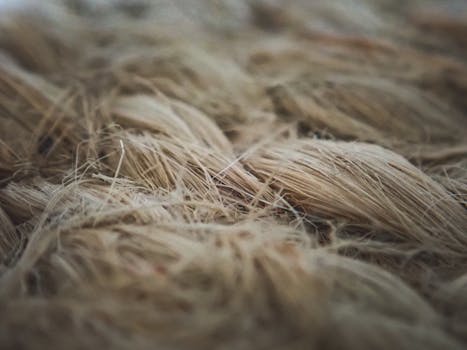Natural Fibers, Global Markets: Africa’s Role in the Sustainable Textile Revolution
Africa is playing a significant role in the sustainable textile revolution, with its rich resources of natural fibers such as cotton, hemp, and flax. The continent’s textile industry is shifting towards sustainable practices, driven by increasing demand for eco-friendly products and government initiatives.

Natural Fibers, Global Markets: Africa’s Role in the Sustainable Textile Revolution
Natural Fibers and Sustainability
Natural fibers, such as cotton, hemp, and flax, are biodegradable, renewable, and require less water and pesticides compared to synthetic fibers. The global textile industry is shifting towards sustainable practices, driven by increasing demand for eco-friendly products and government initiatives. Africa, with its rich resources of natural fibers, is playing a significant role in this revolution.
The African textile industry has traditionally been focused on cotton production, with countries such as Egypt, South Africa, and Nigeria being among the top cotton producers in the continent. However, in recent years, there has been a growing interest in other natural fibers such as hemp, flax, and bamboo. These fibers have several advantages, including high durability, UV resistance, and thermal insulation, making them ideal for a wide range of textile applications.
Africa’s Role in the Global Market
Africa’s natural fiber production is not only meeting the growing demand for sustainable textiles but also contributing significantly to the global market. The continent’s textile industry is expected to grow, driven by increasing demand from emerging markets, particularly in Asia. Africa’s proximity to European markets also provides a competitive advantage, with several European countries investing in African textile production.
The African Continental Free Trade Area (AfCFTA) agreement, which came into effect in 2021, is also expected to boost the continent’s textile industry. The agreement aims to create a single market for African countries, facilitating the free movement of goods and services. This is expected to increase trade among African countries, promoting the growth of the textile industry and creating new opportunities for natural fiber producers.
Challenges and Opportunities
Despite the opportunities, the African textile industry faces several challenges, including limited access to finance, inadequate infrastructure, and lack of skilled labor. Additionally, the industry is heavily reliant on imported machinery and technology, which can be expensive and inefficient. However, these challenges also present opportunities for investment and innovation, particularly in the area of sustainable textile production.
Several initiatives are underway to support the growth of the African textile industry, including the African Development Bank’s Fashionomics Africa initiative, which aims to support the development of the textile industry through funding, mentorship, and training. The initiative focuses on promoting sustainable and inclusive growth, with a particular emphasis on women and youth empowerment.
Conclusion
In conclusion, Africa is playing a significant role in the sustainable textile revolution, with its rich resources of natural fibers and growing textile industry. The continent’s natural fiber production is not only meeting the growing demand for sustainable textiles but also contributing significantly to the global market. While there are challenges to be addressed, the opportunities for growth and innovation are substantial, and with the right support and investment, Africa can become a leader in the global sustainable textile industry.




